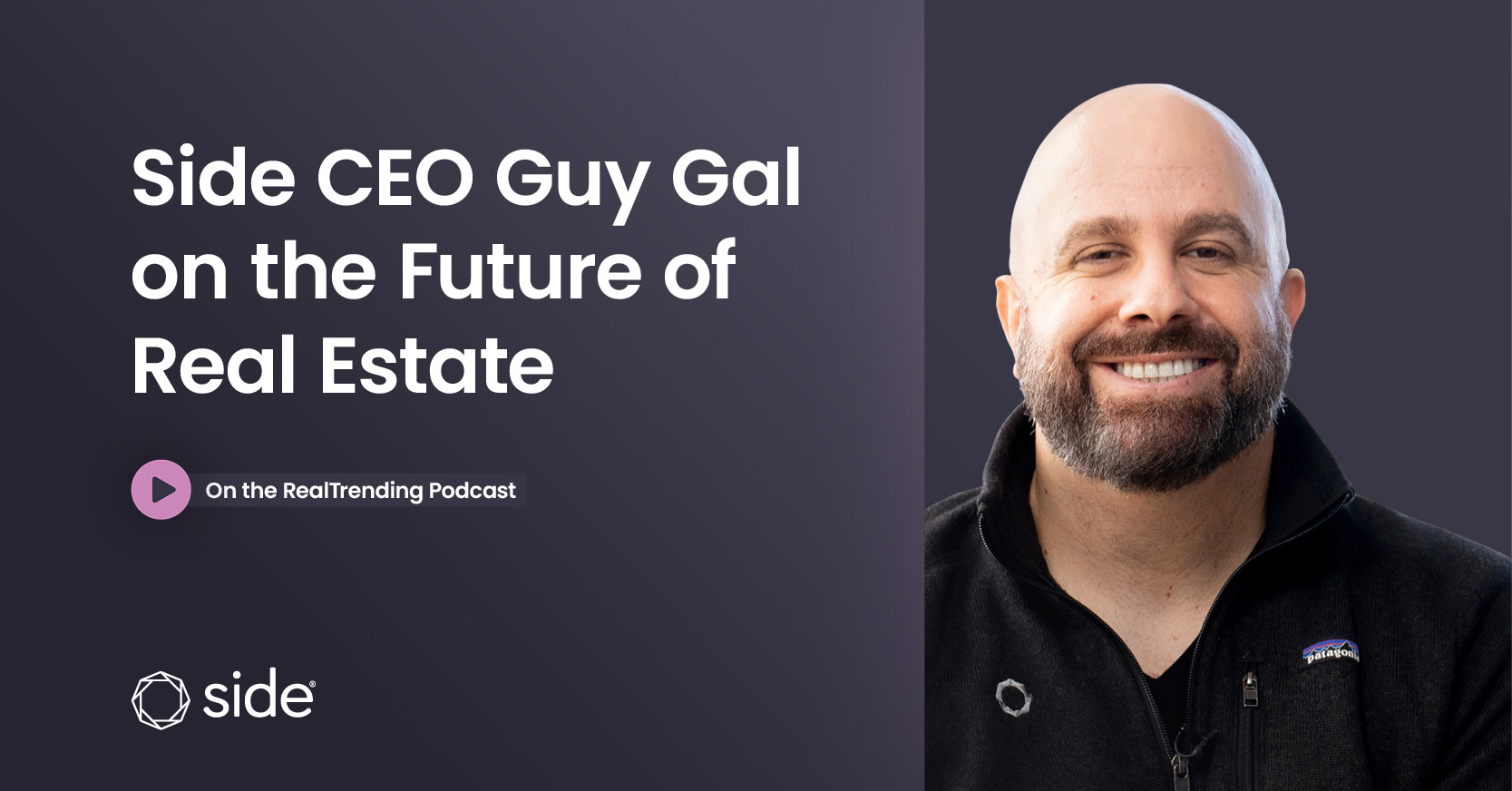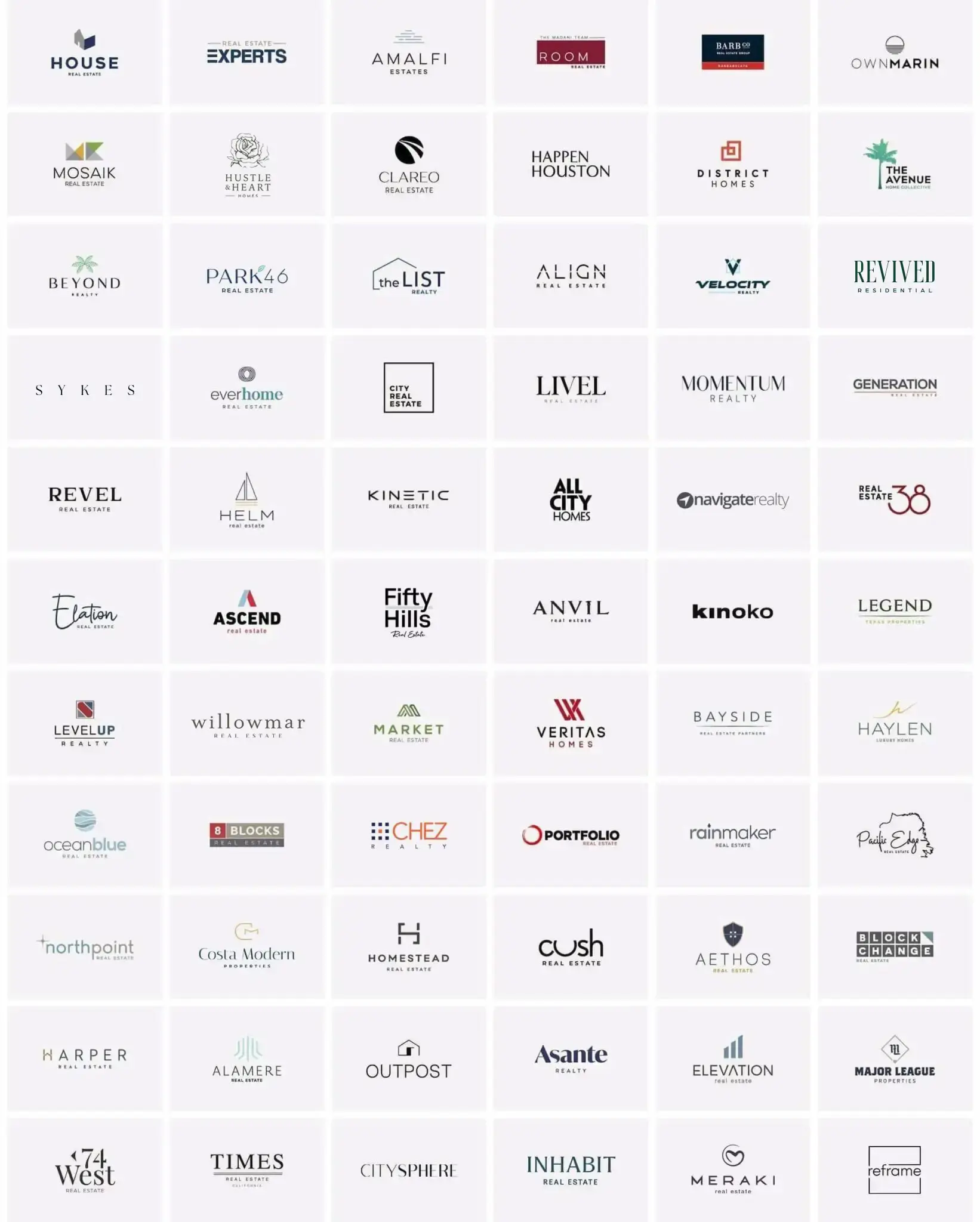
Guy Gal, co-founder and CEO of Side, recently sat down with Tracy Velt, managing editor of RealTrends, to talk about Side’s recent $2.5 billion valuation and where the company and industry are headed.
Catch the full interview on the RealTrending podcast on Apple Podcasts, Spotify, or wherever you get your podcasts.
And read on for some highlights — specifically what Guy has identified as some of the biggest areas of opportunity on the horizon for real estate agents.
These quotes have been edited for clarity and brevity.
Boutique is the future — and the future is now
The more brokerages consolidate into large corporations, the higher the demand will be for boutique alternatives.
“History repeats itself,” Guy told Tracy. “If you look at the industry over the past 100 years, there have been several waves of amalgamation where big corporations have come in and stitched all these smaller brokerages together into this larger Frankenstein of a company.
“Every time that happens, it creates space in the market for new boutiques to emerge. Consumers prefer a boutique experience to [working with] the Walmart of real estate. They want something more bespoke, focused, and specialized. The demand is there, you just need to step up and meet it.
“Consumers prefer a boutique experience to [working with] the Walmart of real estate.”
– Guy Gal, co-founder and CEO of Side
“I believe that, whether you’re working with Side or not, the biggest opportunity right now is to start your own boutique. Set yourself up to be acquired in 10 to 15 years’ time for $30 to $50 million. Put yourself in that position instead of being the product that gets sold and resold over and over again.”
Top-producing agents and teams will dominate (and big, traditional brokerages will struggle)
Most brokerages want part-time, low-producing agents — it’s how they generate the most revenue. But consumers want the opposite; they want the services only a top producer can provide.
“Today, 70% of all transactions nationally are facilitated by part-time agents,” said Guy. “That’s not tenable. And it’s the reason consumers have such low confidence in agent-assisted services: Most agents are not very good at what they do.
“But that’s exactly how the traditional brokerages want it, because an agent doing one deal a year is going to pay a 50% split, if not more. And an agent doing 10 deals a year is going to pay 30%. So the incentives are highly misaligned to where a brokerage would rather have 1,000 agents doing one deal each as opposed to 100 agents doing 10 deals each. Even though it’s the same number of total transactions, the brokerage will make a lot more money if those transactions are distributed.”
He added: “I think in 10 to 20 years’ time, instead of 2 million agents, we’re going to have more like 400,000 very good agents who collectively represent all $2.2 trillion+ in annual home sales nationally.
“And agents doing 30 to 50+ transactions a year have a very different set of needs from part-time agents. That’s why we created Side: to exclusively cater to high-volume agents, teams, and indies.”
Good agents will be critical to protecting homeownership
“In many markets, demand is far outstripping supply,” said Guy. “And that’s not going to change any time soon because restrictive zoning and the high cost of construction are making it difficult to build new homes, especially at the average price point.
“That makes me scared for the future generation of people who won’t be able to buy homes, even though they have good jobs and qualify for mortgages, because the supply is too low. I think that’s one of the reasons agents are so important: Good agents will take someone who may not be easily able to get into a home and make that a reality — because they care, because it’s their passion.
“Unfortunately, there are only about 200,000 of those agents in the country. And in today’s status quo, they can’t serve everyone. That’s why I think it’s so important that the industry supports those agents … to combat the trend of declining homeownership rates.”
Listen to the full podcast on Apple Podcasts, Spotify, or wherever you get your podcasts. Want to learn more about Side? Watch this video on why Side was founded.
